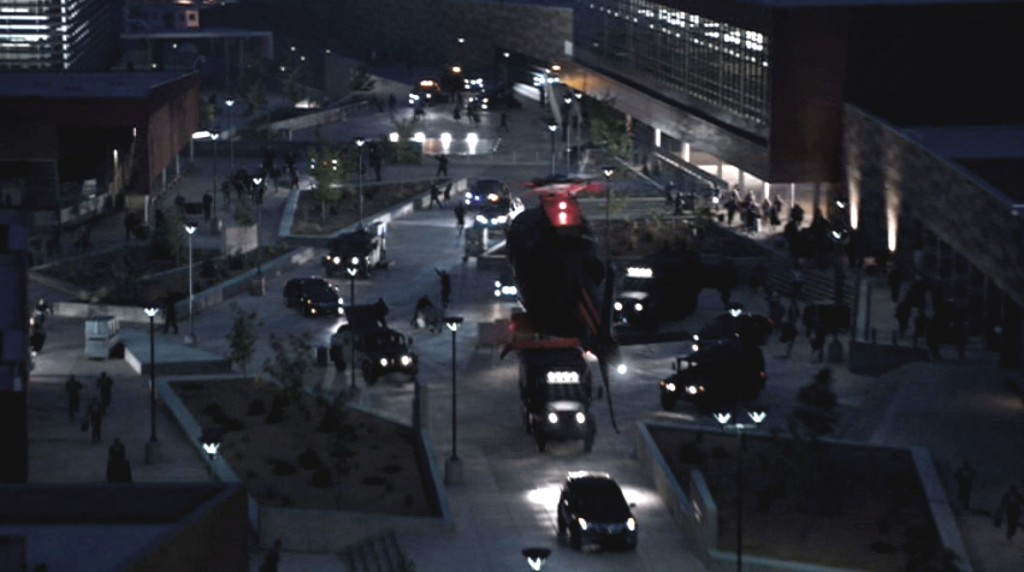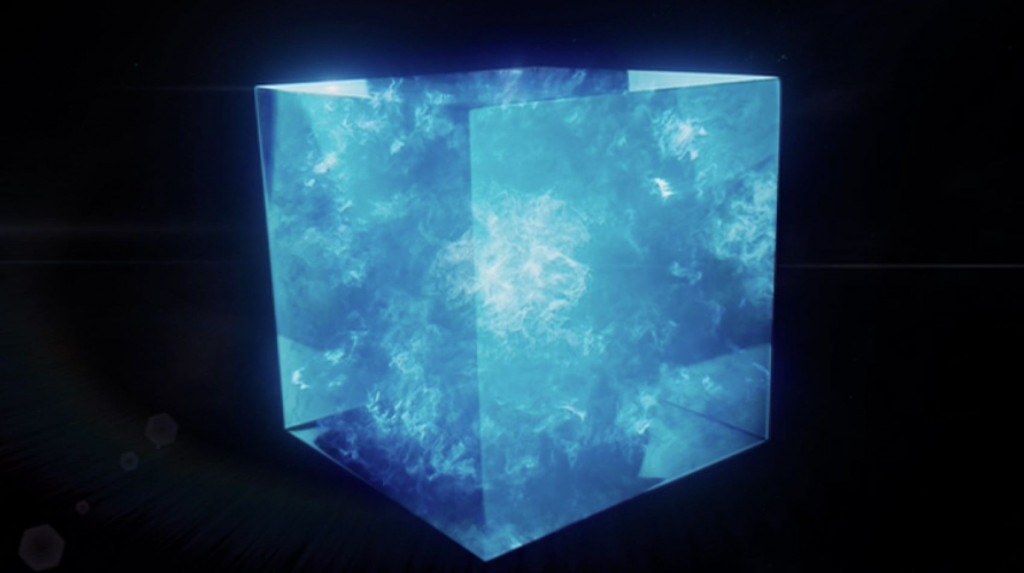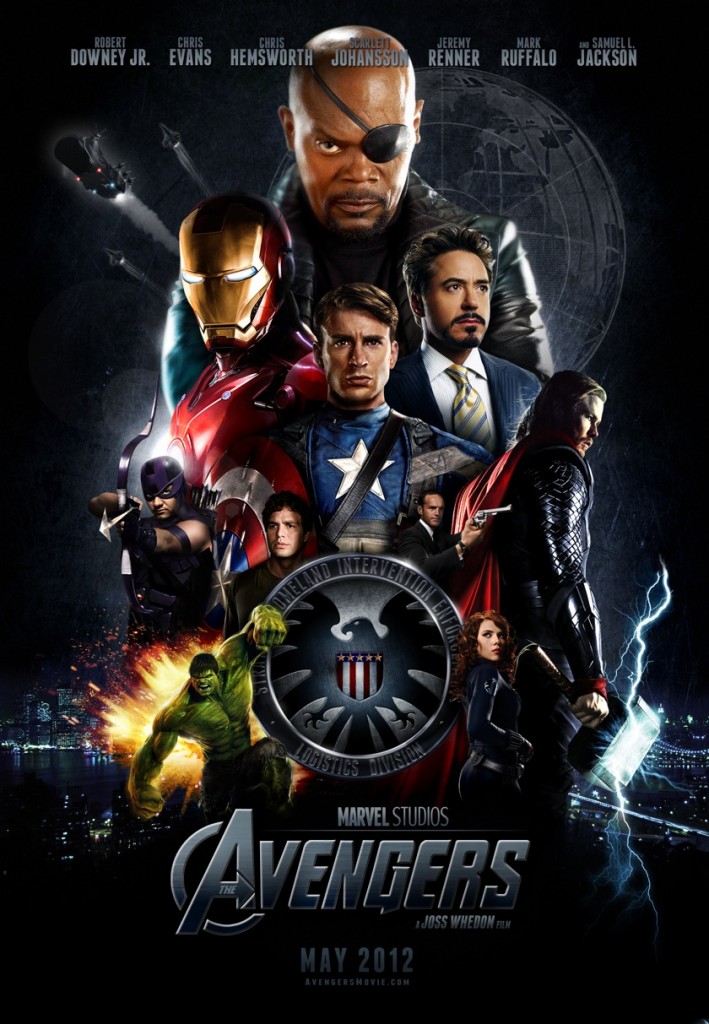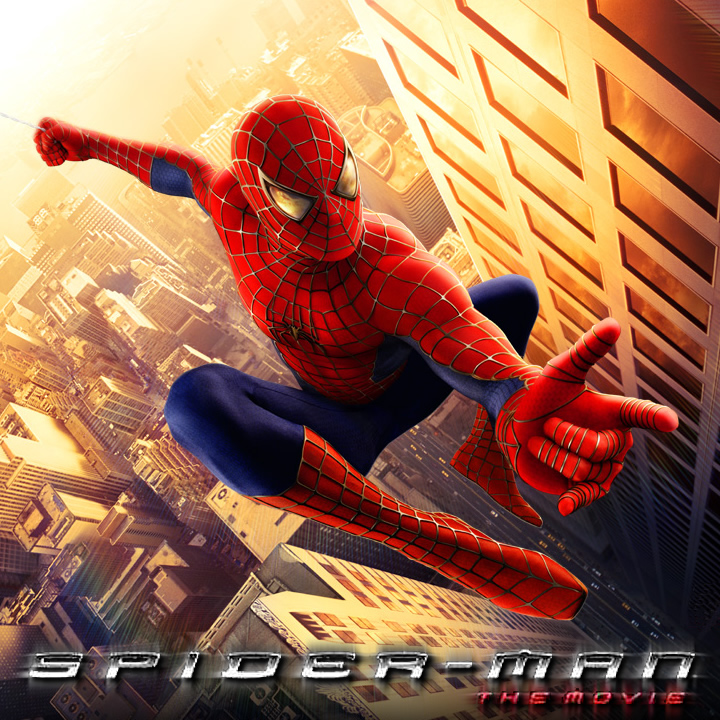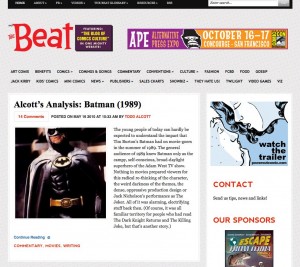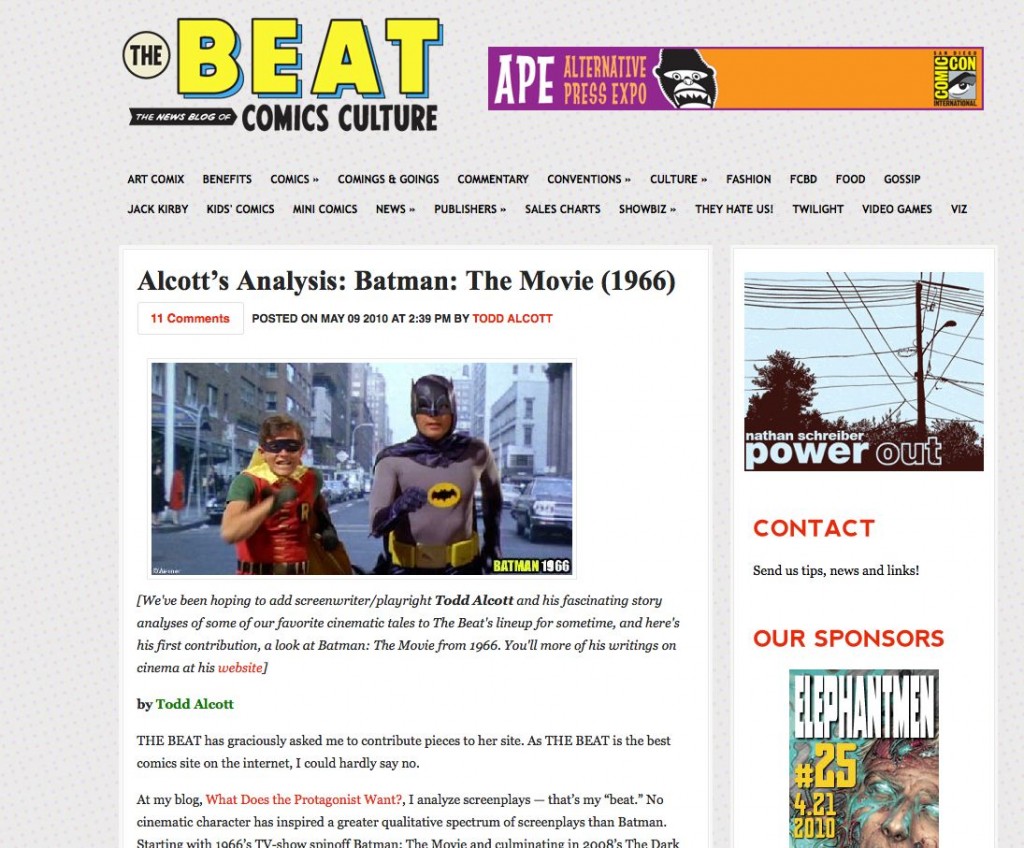The Avengers part 2
At the end of the last post I mentioned “stakes.” An important thing to understand about stakes is that they are directly related to the success of a cinematic narrative. When the stakes are low, the movie feels “small,” and the narrative decreases audience involvement. A movie about a guy who loses his keys is going to be less involving, to most people, than a movie about the end of the world. On a macro scale, less audience involvement generally means less audience. When the stakes are life-or-death, audience involvement increases. So The Avengers takes care to mention, right up front, that nothing less than the fate of all humanity, and the universe, is at stake. Not the planet, not the solar system or even the galaxy, but the universe. Obviously, this movie is playing for keeps.
The Avengers part 1
In the coming weeks, there will be much discussion of what the “best screenplay” of 2012 is. The Avengers will probably be absent from that discussion. That’s a shame, because the screenplay for The Avengers is a startling model of precision, density and propulsive narrative. It manages to balance no fewer than ten wildly disparate main characters in its ensemble cast, but gives each of them weight, clarity and purpose. Dear readers, I’ve worked on many a comic-book movie, none of which ever got near production. Getting one superhero narrative to work is damn near impossible; The Avengers has a screenplay that soars with seven.
A note on The Avengers
You know, it’s quite good.
And it appears the entire world wants to see this movie about a scrappy band of misfits who put their differences aside and refuse to bow down to an individual who would oppress them.
Many years ago I went with my friend R. Sikoryak to see the first Sam Raimi Spider-Man movie. R. had been waiting all his life for that movie, and it did not disappoint him — it all felt right to him. I wasn’t well-read in Spider-Man comics at the time, so I assumed he was right.
Looking back on it now, Spider-Man is a wonderful movie, but does it capture the tone of the comics? My reading of Spider-Man was that he wasn’t so tortured, that he wore his heroism lightly, that he was always there with a quip, that nothing really bothered him that much — as long as he had his Spider-Man suit on, anyway. The act of putting a teenager in a Spider-Man suit on film, I think, meant that the character and his world needed to become — here’s the dreaded word — “grounded.” And the Raimi movies got that down well. When you take a character in spandex and put him on screen, he’s bound to look ridiculous. Because of that, everyone in the movie must take this all very seriously, or else there is no dramatic tension.
Look at where we’ve come in this genre from the Batman TV show to The Avengers. The Batman creators saw that a man dressed like a bat punching people was ridiculous, and so everyone played it for laughs. The Superman movie creators saw that a little weight could add resonance to this pulp material, but they had no real faith in the source material. Deep down, they thought it was all kind of silly and gave Superman a buffoonish Lex Luthor to fight. Look at a project like Justice League of America: The Movie and you can see how disastrous a too-light approach can be to this kind of material. How can we care about anything onscreen if everyone is an idiot?
The Avengers, I think, gets it all right, more so even than X-Men: First Class, up ’til now my favorite Marvel movie. The characters are well drawn, well played, taken seriously and grounded, but it all plays very lightly, the way I remember Avengers comics being. Disaster always looms, the world is always on the brink of collapse, but everyone in the movie manages to bear the burden with a grin. I mean, we’re talking about a world where a thawed-out super-soldier, a Norse god and a Jekyll-and-Hyde monster all live in the same space, where an aircraft-carrier can fly, where the multi-billionaire arms dealer with the flying super-suit is the most “grounded” character of the bunch.
Add to this the fact that the movie has to juggle the concerns and arcs of no fewer than ten main characters, and does so with grace, humor and panache. There is never a moment where you’re thinking “Come on, where’s the Hulk already?” or “Ugh, Captain America, I’m gonna go get some popcorn,” but neither does the movie get so bogged down in any one character’s struggles that the narrative slows.
And we remember, we read superhero comics as children because they were fun. The adventures were huge, the mayhem panoramic, the tests of will and strength arduous, but above all, they were fun. The Avengers remembers that.
some thoughts on Green Lantern
The big news in Hollywood this weekend is that Green Lantern “failed,” bringing in “only” $52.6 million. “Only,” here, refers to gross-to-expectation ratio.
The reviews were scathing, and when I took my son Sam, 10, to see it on Saturday afternoon, I was fully expecting to see a movie that is thin, noisy, incoherent, poorly plotted, silly and preposterous.
I was pleasantly surprised to find that the movie is none of those things. Rather, it’s entertaining, fast-moving, articulate, and very faithful to its source material. If you are curious about the character and concept of Green Lantern, you will find no better introduction than this movie.
Is it perfect? No, it’s not. But, for some reason inherent to the genre, I find that very few superhero movies are. A movie like the original Spider-Man, for instance, I kind of have to push through the plot and character problems and take it for what it is before I can enjoy it, and then it’s very enjoyable. I can’t think of a single superhero movie, except perhaps The Dark Knight, that really stands up to simple tests of plot, character, motivation, chronology, plausibility, etc.
(Having worked on a number of superhero projects, I speak from experience — they’re really hard to get right, to keep all the elements in line and all the balls up in the air. A contemporary working screenwriter can only watch The Dark Knight from a position of awe.)
Why did the critics hate Green Lantern? I can’t say for sure, but I think it’s a matter of fashion. Marvel has done extremely well for itself presenting a brand of “grounded” superheroes, superheroes who work within a realistic, nuts-and-bolts world that people can recognize. “Grounded,” in fact, has become a buzzword around Hollywood, a town that loves buzzwords, that clings to buzzwords like magical talismans. Iron Man is “grounded,” and so now all movies, especially fantasy movies, must also be “grounded.”
Green Lantern, on the other hand, is not “grounded.” It asks us to buy, before the movie even starts, the concept of an intergalactic police force staffed by goofy-looking aliens and overseen by a bunch of ancient blue guys with see-through skulls who watch over the entire universe.
To a Green Lantern fan, this “buy” is easy — well of course the Green Lantern Corps exists, that’s what the whole thing is about. But to the average non-geek moviegoer, the response is, most likely, “Are you kidding me?”
Think about this:
Nine years ago, The Onion ran this editorial: “When You Are Ready to Have a Serious Conversation about Green Lantern, You Have My E-Mail address.” The piece, a classic, not only perfectly captures a certain type of comics fan, but also perfectly reflects what the average walking-around Joe knows about Green Lantern, which is: who cares?
Now, as if by magic, there is a $200 million movie based on Green Lantern, with a huge marketing campaign and all its attendant pomp and flourish.
(The Onion, not a publication to drop the ball, does it again with this lovely bit of video reporting.)
The fact is, Green Lantern is a hard character for the average moviegoer to “get.”
Why? Because Green Lantern isn’t a character, it’s a job. There is no audience response to the phrase “Green Lantern” because there isn’t any specific guy who is Green Lantern. Clark Kent is Superman, and Bruce Wayne is Batman, Tony Stark is Iron Man, but no one in particular is Green Lantern. My own son, who has no trouble with the concept, only really knows John Stewart as Green Lantern from Bruce Timm’s brilliant Justice League shows. It’s like WB made a $200 million movie called Intergalactic Beat Cop. Who would see that movie, without knowing who the character was? They didn’t make a movie called Hal Jordan: Green Lantern, they made a movie called Green Lantern and showed, on all the marketing, that this is a movie about a job, a job with thousands of other employees, with a headquarters in outer space.
That, in my opinion, is why Green Lantern underperformed this weekend. In order to sell the Green Lantern concept, you have to get the audience to understand that this is not a movie about “Peter Parker, who gets bitten by a radioactive spider and thus becomes Spider-Man.” Rather, you have to get the audience to buy the idea that there is a job, out there, somewhere, called Green Lantern, and this is the story of Hal Jordan, who gets called to fill an opening in that job.
That doesn’t sound like that much for an audience to buy, but that is what happened — the idea that Green Lantern isn’t a guy but a job make Green Lantern a tough sell for civilians. I should know, I’ve encountered this exact same problem in my own life. Sitting down to discuss superheroes with non-initiates, everyone knows who Batman is, everyone knows who Superman is, everyone knows who Wonder Woman is, everyone knows who Spider-Man is, but when you bring up Green Lantern, they draw a blank — there is no character there. And when it comes time to part with $35 for a 3D movie, the average couple will go for something they “know” over something they do not.
Movie night with Sam
I showed my son Sam (9) Spider-Man. The following conversation occurred at the climax of the movie.
NORMAN OSBOURNE: (to Peter Parker) Peter! How could you? I was like a father to you!
PETER PARKER: I had a father. His name was Ben Parker.
SAM: Wait, his dad and his uncle had the same name?
New Batman piece up at The Beat
My piece on Tim Burton’s ground-breaking 1989 Batman is up at The Beat. Due to The Beat’s recent flame-discouraging policy, response has been much more sober and respectful this time around.
What Does The Beat Want?
It’s been a big internet week for me. First, I launched this new blog (if you haven’t switched your Livejournal bookmarks, do so now!) Then, out of nowhere, someone I’ve never even met made this smashing video out of a monologue I wrote 20 years ago, and it’s caught on like internet wildfire. And now, my good friend Heidi McDonald at The Beat has started re-posting some of my earlier comics-movies-related analyses, starting with my look at 1966’s Batman: The Movie.
This is the first time one of my blog pieces has been re-posted in another forum, but the reviews are in and readers are ecstatic!
“You are a complete idiot!” – vlucca
“Although I wouldn’t level the charge of “idiot” as vlucca does,I would say ‘misguided’ or “sloppy.'” – S. Chapman
“This so-called “analysis” … seems to have missed the mark entirely!” – KET
“This isn’t so much analysis as it is a badly-written review of a film that the reviewer obviously doesn’t understand or appreciate!” – John
Superheroes: Batman Begins part 2
Yesterday I laid out the basic structure of Batman Begins. And while structure, as any screenwriter knows, is the name of the game for a successful screenplay, it is not the only thing that makes Begins such a detailed, well-considered movie.
Assuming the reader is already familiar with the structure, here are some observations I have in chronological order:
Superheroes: Batman Begins part 1
WHAT DOES THE PROTAGONIST WANT? Bruce Wayne, orphaned at eight, wants to overcome his fears and honor his father. This turns out to be rather more complicated than he suspects.
Batman Begins presents a radically new vision (for the movies, anyway — this stuff had been around the comics and the animated series for many years beforehand) of the Batman story, grounds it in a startling new sense of reality, presents not just a caped crusader and a wacky new villain but a whole wealth of good guys and bad guys, all following their stars in increasingly complex and interconnected ways, all of it bound together with the one fantastic conceit of a young billionaire who dresses up like a bat. It strongly reminds me of the Casino Royale re-boot, which brought the James Bond character to a new level of immediacy while retaining enough of the series’ fantastic hallmarks to still qualify as escapism. There is still enough silliness in Batman Begins to make it a recognizable "superhero movie" (grand, outsized villains with colorful personalities and an ambitious scheme to destroy an entire city, spectacular action sequences that teeter at the brink of believability, production design that borders upon science-fiction) but it’s presented with a sober, straightfaced earnestness that’s nothing less than shocking after the garish camp of Batman & Robin. The Dark Knight would successfully develop all of Begins‘s good ideas into an even more complex, startling vision of modern urban justice.
